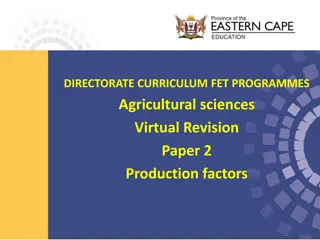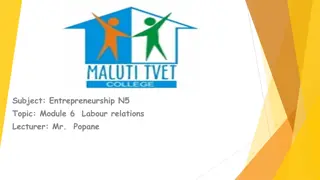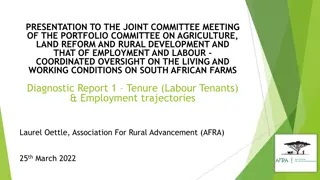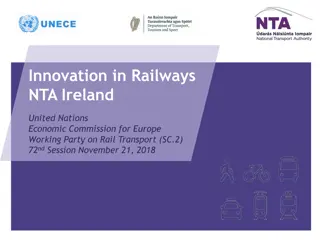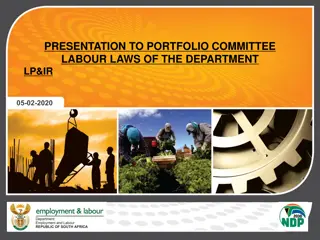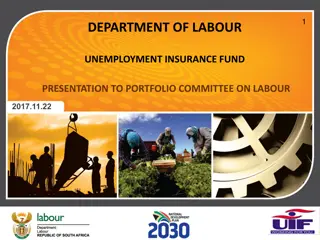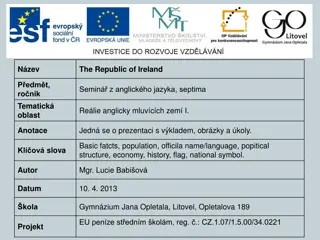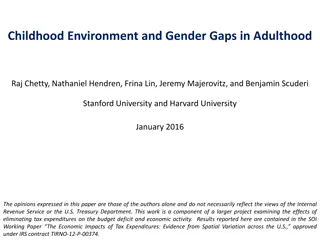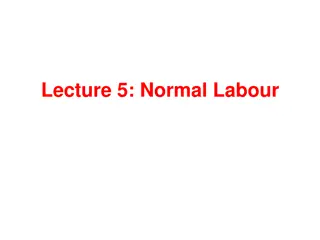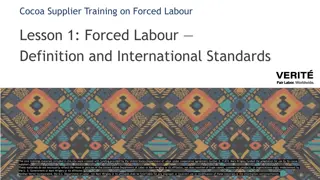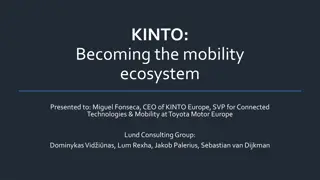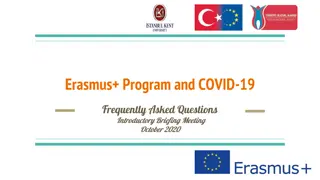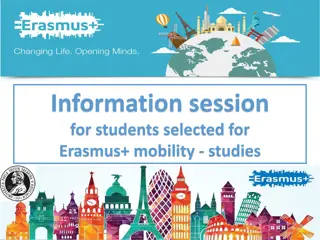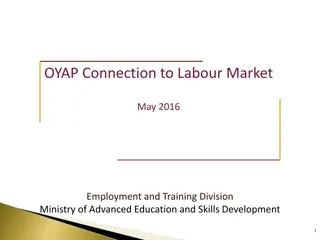Addressing Skills Development Gaps and Labour Mobility in Ireland
The engagement workshop led by Ian McKenna from DFHERIS focuses on addressing skills development gaps in Ireland to ensure equal access to quality services and enhance cross-border labour mobility. The investment area 2.3 highlights the OECD Skills Strategy for Ireland, emphasizing the need for upskilling in response to technological advancements. Despite Ireland's performance in digital skills, there are concerns over skills imbalances in the workforce. Enhancing leadership and management capabilities is crucial for driving innovation, productivity, and organizational performance.
Download Presentation

Please find below an Image/Link to download the presentation.
The content on the website is provided AS IS for your information and personal use only. It may not be sold, licensed, or shared on other websites without obtaining consent from the author. Download presentation by click this link. If you encounter any issues during the download, it is possible that the publisher has removed the file from their server.
E N D
Presentation Transcript
PEACE PLUS PEACE PLUS Engagement Workshop Pre Pre- -Engagement Workshop Ian McKenna Principal Officer Department of Further and Higher Education, Research, Innovation and Science (DFHERIS)
INVESTMENT AREA 2.3 INVESTMENT AREA 2.3 - - SKILLS DEVELOPMENT SKILLS DEVELOPMENT This objective will address existing and emerging skills gaps, leading to equal access to inclusive and quality services and increasing cross- border labour mobility. It will result in the development of a flourishing Programme area workforce, with skills better aligned to existing and future growth sectors and in line with public policy.
INVESTMENT AREA 2.3 INVESTMENT AREA 2.3 - - SKILLS DEVELOPMENT SKILLS DEVELOPMENT OECD Skills Strategy Ireland (May 2023) The Skills and Labour Market Research Unit (SLMRU) finds that over 370,000 people in Ireland work in occupations at high risk of automation and further 600,000 are in jobs considered at medium risk of automation. Technological change can help drive productivity and overcome skills shortages. However, it also means that many people will need to develop skills for new jobs or upgrade their skills for existing ones.
INVESTMENT AREA 2.3 INVESTMENT AREA 2.3 - - SKILLS DEVELOPMENT SKILLS DEVELOPMENT OECD Skills Strategy Ireland (May 2023) .. while Ireland performs above the EU average in terms of digital skills scoring fifth overall in the Digital Economy and Society Index 2022, with strong growth in recent years only 30% of adults have less than basic digital skills (including information and data literacy, digital content creation and more). In addition, it is particularly worrying that adults with comparatively weak socio- economic profiles (e.g. lower social classes, low education levels) self-report that their digital skills are below average.
INVESTMENT AREA 2.3 INVESTMENT AREA 2.3 - - SKILLS DEVELOPMENT SKILLS DEVELOPMENT OECD Skills Strategy Ireland (May 2023) Skills imbalances are evident in the Irish economy. These imbalances concern not only skills shortages and surpluses but also skills mismatches, which occur when a worker s skills exceed or fall short of those required for the job under current market conditions. Irish employers express great concern about labour and skills shortages. Strong leadership and management capabilities are important drivers of organisational change, helping to optimise the use of skills in workplaces and drive innovation, productivity and firm performance. Previous studies have highlighted a need to improve management capability in Ireland, particularly among small and medium-sized enterprises.
INVESTMENT AREA 2.3 INVESTMENT AREA 2.3 - - SKILLS DEVELOPMENT SKILLS DEVELOPMENT Ambition Change the lives of minimum of 8,000 persons, North and South Exploit the Skills toolkits, North and South, to: Share and learn best practice from existing skills infrastructure; Support existing strengths within sub-regions to deliver on skills acquisition (re-/ up- skilling) Build sustainable networks and connections on cross-border/ cross-community basis to maintain momentum built during PEACE PLUS; Recognise the mobility of the North-South workforce to pursue their professional ambition on the island of Ireland, based on their capacity to use their skills;





